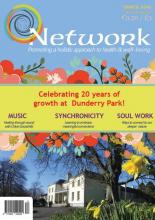Action Speaks Loudest
by:
Amanda Evans
Published:
Friday, June 12, 2015

For years we have been told that if we want to improve our lives, we need to change how we think. We should force ourselves to have positive thoughts and we will become happier. We should visualise our dream selves and we will enjoy increased success. We are encouraged to to imagine our perfect lives and to see ourselves where we want to be.
But research suggests that focusing only on the desired results isn’t always helpful. In a study at the University of California, students who visualised studying well for their exams performed better than students who visualised obtaining a high result.
When it comes to creating change there is a simple and effective way to transform how we think and feel. This technique is grounded in science and is taken from the work of William James who worked at Harvard University in the late 19th century. He had an unconventional approach to life that paid off. In 1890 he published Principles of Psychology, which remains required reading for students in behavioural science today.
Exploring the relationship between emotion and behaviour, James noted that our everyday experience tells us that our emotions cause us to behave in certain ways. If we feel happy we will smile, and if we feel sad we will frown. James concluded that this view was incomplete and he proposed a radical new theory. He proposed that the relationship between emotion and behaviour was a two-way street, and that behaviour could in fact cause emotion. According to his theory smiling can make us feel happy and frowning can make us feel sad.
In the 70s psychologist James Laird put James’s theory to the test. He invited volunteers who were asked to make certain facial expressions. The results were just as James had predicted, the volunteers felt happier when they forced their faces into smiles. Subsequent research has also shown that the same effect applies to nearly all aspects of our lives. By acting as if we are a certain type of person, we can become that person. Decades of research has shown that by using this theory and taking action we can become happier, avoid anxiety and worry, fall in love, stay healthy, increase our willpower and confidence, and so much more.
So, let’s take a look at some quick and effective actions that we can use everyday to transform how we think and behave.
Laird's study proved that smiling makes us feel happier. To receive the most benefit, make the smile as wide as possible and hold for approximately 20 seconds. Repeat often.
Iris Hung’s research showed that tensing muscles boosts willpower. To enhance willpower and avoid things like smoking or eating unhealthy snacks all we have to do is make a fist or contract our biceps.
Eating with the non-dominant hand allows us to place more attention on the action of eating and we don't just eat without thinking about it. This also helps us to eat less.
Procrastination is a killer and to beat it all we have to do is act as if we are interested in what we have to do. Spending just a couple of minutes doing the first part of what we are avoiding will suddenly have us wanting to finish the task.
In a study led by Ron Friedman from the University of Rochester, volunteers were given tricky problems to see how long they could persevere. Those who sat up straight and folded their arms lasted twice as long as the other participants. So when things get tough, all we have to do is sit up straight and fold our arms.
Power poses are great for boosting confidence and self-esteem. In a seated position, lean back, look up and join hands behind the head. In a standing position, place feet flat on the floor, push back the shoulders and forward the chest.
Putting these six quick and effective techniques into use in our everyday world can soon make a difference. Scientists have already proven it and now we have the chance to prove it to ourselves. These simple techniques can be used in conjunction with affirmations and visualisations to help us propel ourselves forward and achieve the life that we desire.
About the author:
Amanda J Evans is a freelance writer and published author specialising in the self help, spiritual and holistic genres. Amanda can be contacted via her website
amandajevans.com
Latest Issue
Upcoming Events
-
17/04/2020 to 26/04/2020
-
18/04/2020
-
23/04/2020
-
15/05/2020 to 23/05/2020
-
16/05/2020 to 17/05/2020
Recent Articles
Article Archive
- November 2011 (2)
- January 2012 (3)
- February 2012 (2)
- March 2012 (2)
- April 2012 (4)
- May 2012 (4)
- June 2012 (1)
- July 2012 (3)
- August 2012 (2)
- October 2012 (2)

